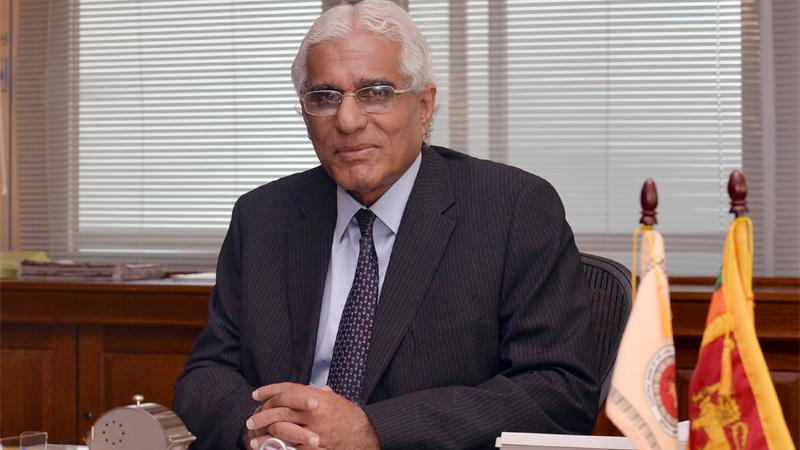
The government is implementing a broader policy package, aimed at harnessing the country’s untapped potential by effectively leveraging its excellent location and international relations with many capital surplus countries, Governor Central Bank of Sri Lanka, Dr. Indrajit Coomaraswamy told the 21st Annual Tax Oration organised by the Faculty of Taxation, Institute of Chartered Accountants of Sri Lanka on Thursday.
Speaking on the topic ‘Revenue Based Fiscal Consolidation towards Sustainable Growth’, he said the government is also in the process of implementing a strong fiscal consolidation program.
After decades of policy forbearance and missed opportunities, Sri Lanka is at an inflection point.
There exists the potential for a leap in development. The Central Bank is also aligning its policies and processes to deliver better outcomes in the future, he said.
Dr. Coomaraswamy said fiscal policy refers to the government’s taxation, expenditure and deficit financing operations.
“Fiscal policy influences the macro-economy in a number of ways; it changes the level and composition of aggregate demand (through taxation, expenditure and borrowings), changes aggregate supply (through taxation and subsidies as well as its impact on savings and investment), and influences national savings and investments (through expenditure and taxation),” he said.
Under the Monetary Law Act (MLA), the Central Bank is entrusted with the responsibility of ensuring price and economic stability, and financial system stability of the economy.
This encompasses the formulation and implementation of monetary policy i.e. the actions to influence cost and availability of money as well as activities related to regulating and supervising key categories of financial institutions, maintaining stability in key financial markets and overseeing the payments and settlements system. These are complementary but distinctly separate roles.
It is widely accepted that fiscal deficits resulting from low revenue and/or high expenditure, if monetised would fuel inflation. The magnitude of this effect could be significantly large, if there exists fiscal dominance such that monetary policy is accommodative to fiscal deficits.
The success in achieving growth objectives depends largely on the foundation on which the economy operates. A strong foundation with macroeconomic stability is crucial for a robust framework, which facilitates the achievement of sustainable growth.
Macroeconomic stability exists when key economic relationships are in balance and sustainable — for example, between domestic demand and output, fiscal revenues and expenditure, savings and investment and the balance of payments. These relationships, however, need not necessarily be in surplus or even in exact balance. Imbalances such as fiscal and current account deficits are perfectly compatible with economic stability, provided that they can be financed in a sustainable manner i.e., without creating unsustainable public debt and external reserve dynamics, he said.
Macroeconomic stability is essential for high and sustainable growth. However, macroeconomic stability by itself does not ensure high rates of economic growth. It is a necessary but not sufficient condition. In most cases, sustained high rates of growth also depend upon key structural policies as well.
The Central Bank has a central role to play in macroeconomic management, in particular the stabilisation role, to achieve sustainable growth. It has responsibility for two of the three key macroeconomic instruments, namely the interest and exchange rates and sound monetary - fiscal coordination This is not an easy task to achieve. Monetary – fiscal coordination is a complex but vital component in overall macroeconomic management, the Governor said.. In Sri Lanka also, we should understand that monetary or fiscal policy cannot be implemented in isolation. These two affect each other due to the associated macroeconomic dynamics. Political and social conditions of the country, as well as global economic developments also impact on the conduct of these two policies.
The overall budget deficit, and the way it is financed, has important implications, for monetary policy related variables, such as interest rates, money supply, inflation, external reserves and the exchange rate which come under the purview of the Central Bank, he said. - SJ
